ADHD and Working Memory In Children
Do you work with children who have attention deficit hyperactivity disorder (ADHD)? ADHD symptoms may include deficits in executive functions such as working memory. Researchers have explored ADHD and memory in children in order to understand any memory problems that may be present in this group of children.
Working memory is an important cognitive function. It allows us to temporarily store small amounts of important things that are readily accessible so we can process the information. This ability helps with planning, comprehension, reasoning, and problem-solving.
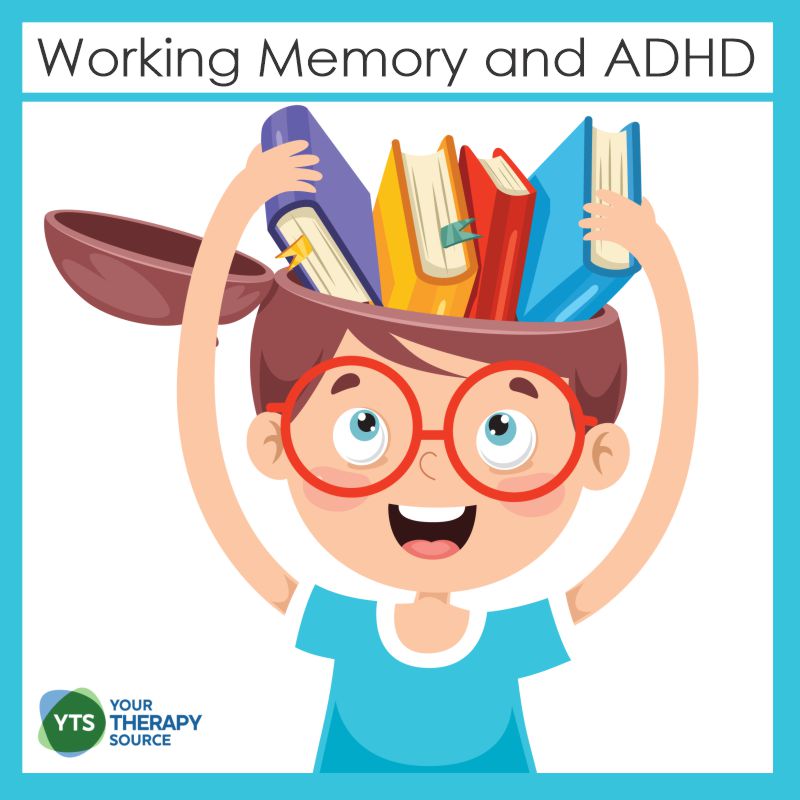
Short-term memory and working memory are not the same things. The job of short-term memory is to store information for a short amount of time. In contrast, working memory holds onto the information so we can use it again. Our working memory uses our short-term memories to complete specific tasks.
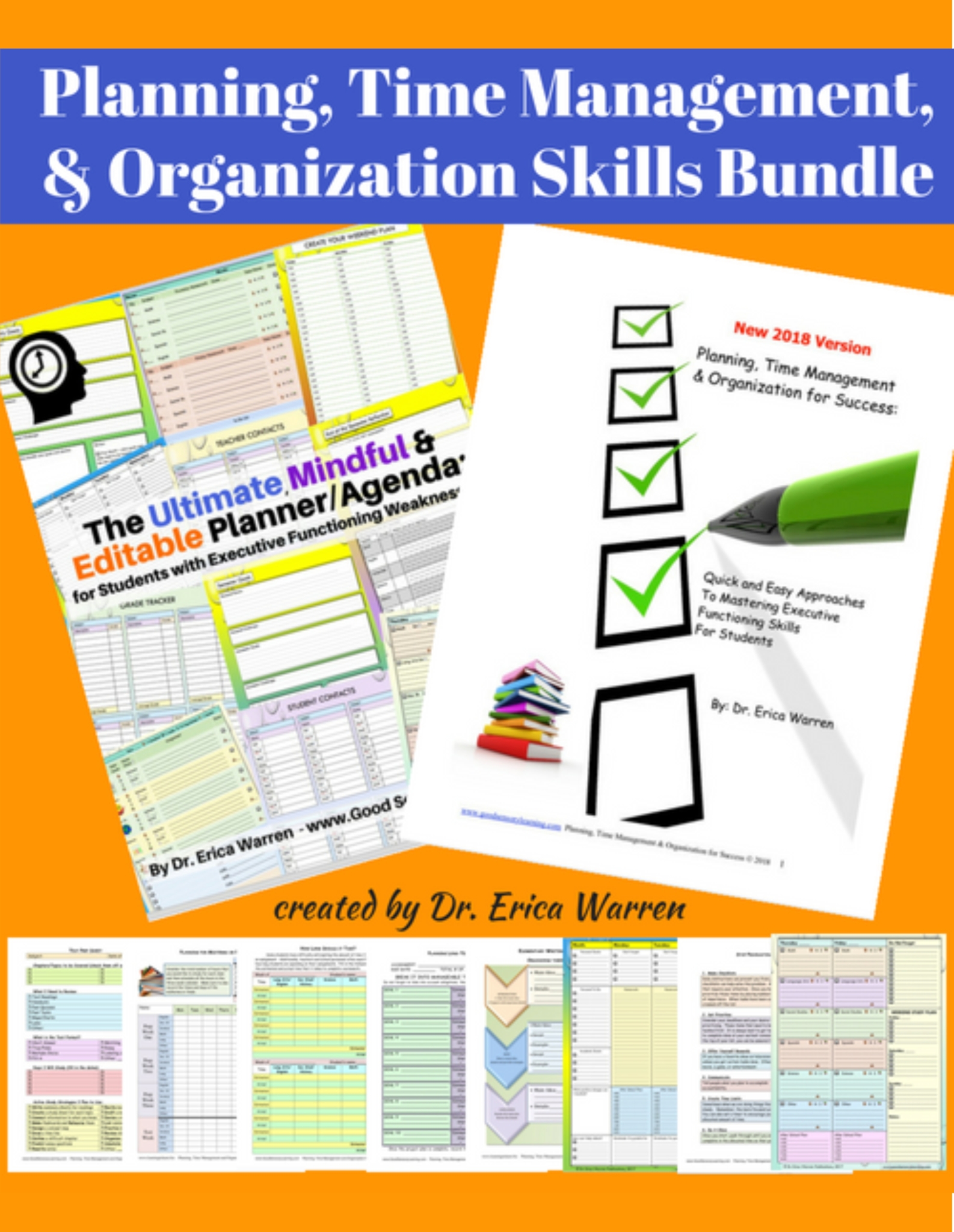
Planning, Time Management, and Organization Skills Bundle
What Does the Research Say on ADHD and Memory?
A systemic review included 49 studies from previous research comparing 4956 children and adolescents with ADHD against 3249 neurotypical controls generated a medium-sized effect that showed poorer verbal WM performance in those with ADHD.
In addition, one statistical analysis showed a negative association between working memory differences and increasing age, indicating that for every one year increase in age the effect size decreased by .05. The researchers concluded that working memory is a key part of cognitive dysfunction in ADHD, and point to age as the main variable influencing working memory performance difficulties (Ramos et al, 2020).
What Does the Research Say on ADHD, Emotions, and Working Memory?
Many different research studies have been completed that take a closer look at the relationship between ADHD, executive functioning, and working memory in children.
One of the previous studies indicated that:
- working memory demands may be functionally related to emotional regulation deficits displayed by children with ADHD.
- These working memory deficits may explain the variability of emotion regulation difficulties related to environmental demands (Tarle et al, 2019).
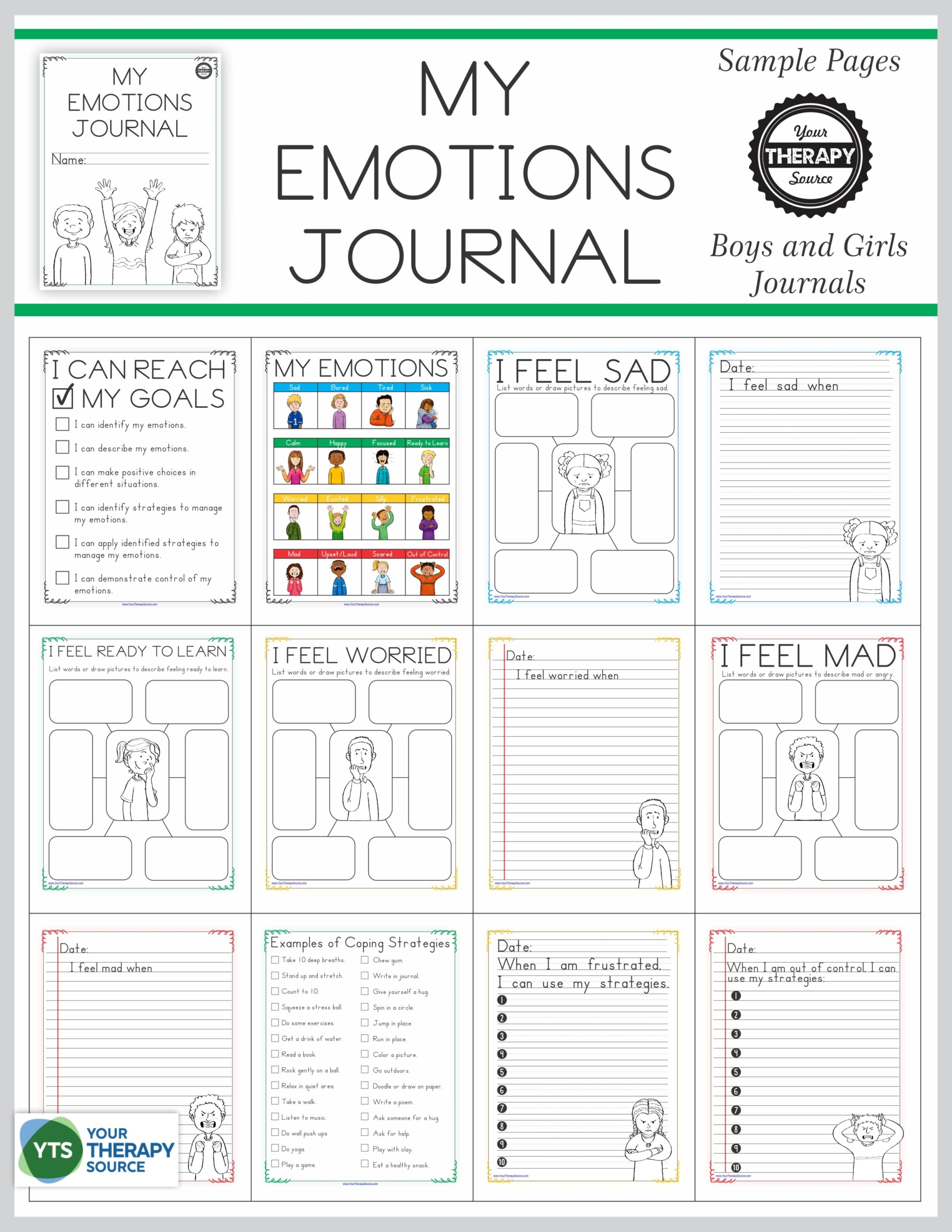
Emotional Regulation Worksheets – For Boys and Girls
Research on Handwriting, ADHD, and Working Memory
Another recent study examined handwriting, ADHD, and memory. These researchers found the following:
- there was a significant difference between the ADHD and control group for handwriting speed only in the verbal working memory loading condition.
- children with symptoms of ADHD wrote more slowly and showed greater intra-individual variability than controls.
- handwriting legibility was affected by verbal WM loading too.
These researchers concluded that working memory load influences handwriting skills in children with ADHD (Capodieci, A et. al., 2018).
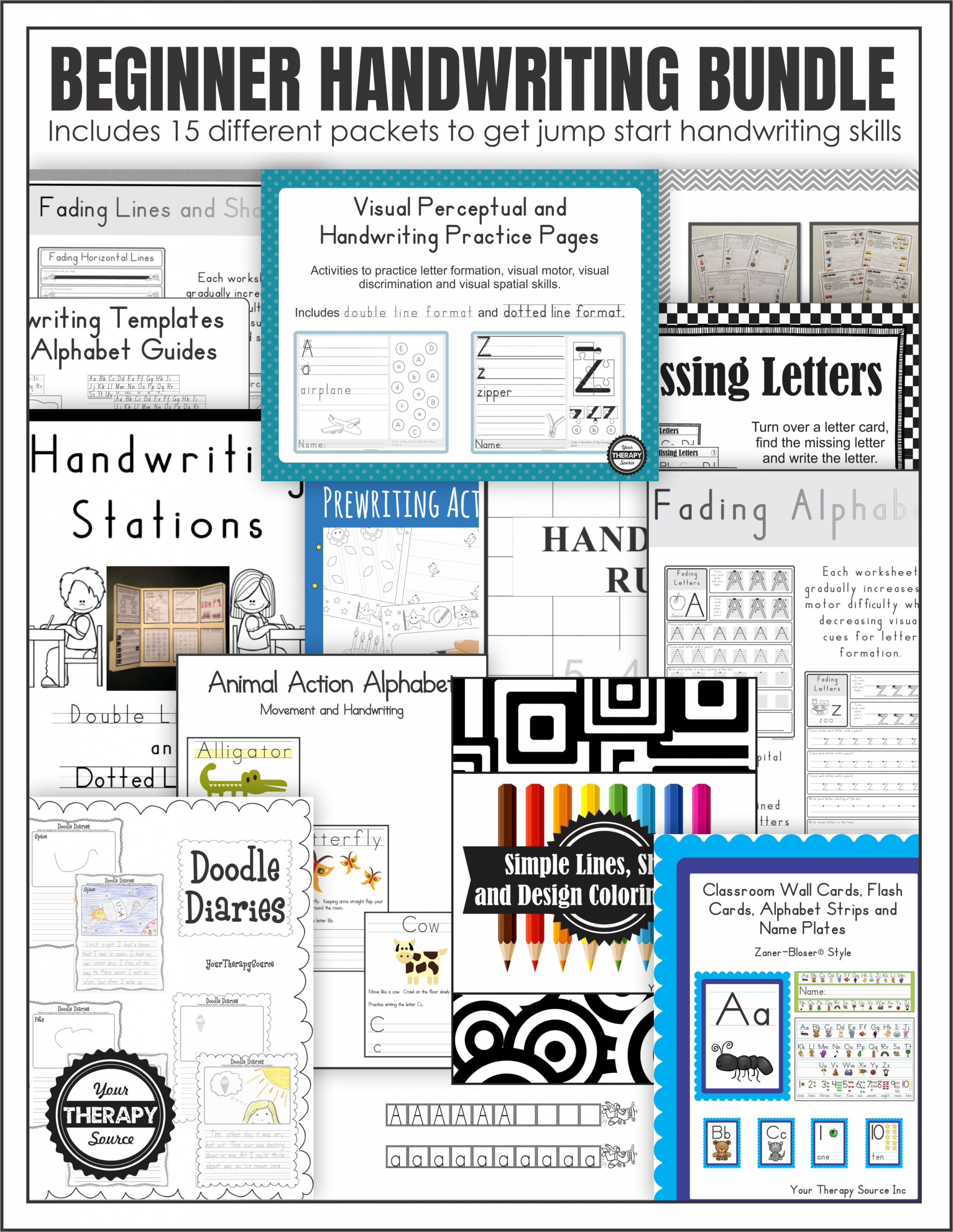
Beginner Handwriting Collection
What Does the Research Say About ADHD, Memory Issues, and Activities of Daily Living?
The memory capacity of children with attention-deficit hyperactivity disorder in children can also influence activities of daily living (ADL). ADLs are activities that we complete on a daily basis.
A recent study investigated the extent to which pediatric ADHD is associated with ADL difficulties. In addition, if there is an association, they wanted to know the extent to which these difficulties are related to their well-documented working memory difficulties and/or core ADHD inattentive and hyperactive/impulsive symptom domains.
After studying 141 school-aged children (ages 8–13 years) who participated in working memory tests and were assessed for ADHD symptoms (teacher-ratings) and ADL difficulties (parent-ratings), the researchers concluded that:
- Children with an ADHD diagnosis exhibited medium magnitude difficulties with ADLs (d = 0.61, p < .005, 38% impaired).
- lower working memory predicted reduced performance of age-expected ADLs and greater ADHD inattentive and hyperactive/impulsive symptoms.
- after controlling for working memory, greater inattentive, but not hyperactive/impulsive, symptoms predicted that the children would have a hard time with ADLs.
- working memory exerted a significant indirect effect on ADLs via inattentive but not hyperactive/impulsive symptoms.
The researchers concluded that ADHD inattentive symptoms are a potential mechanism underlying ADL difficulties for children with ADHD, both independently and via working memory’s role in regulating attention (Irwin et al, 2021).
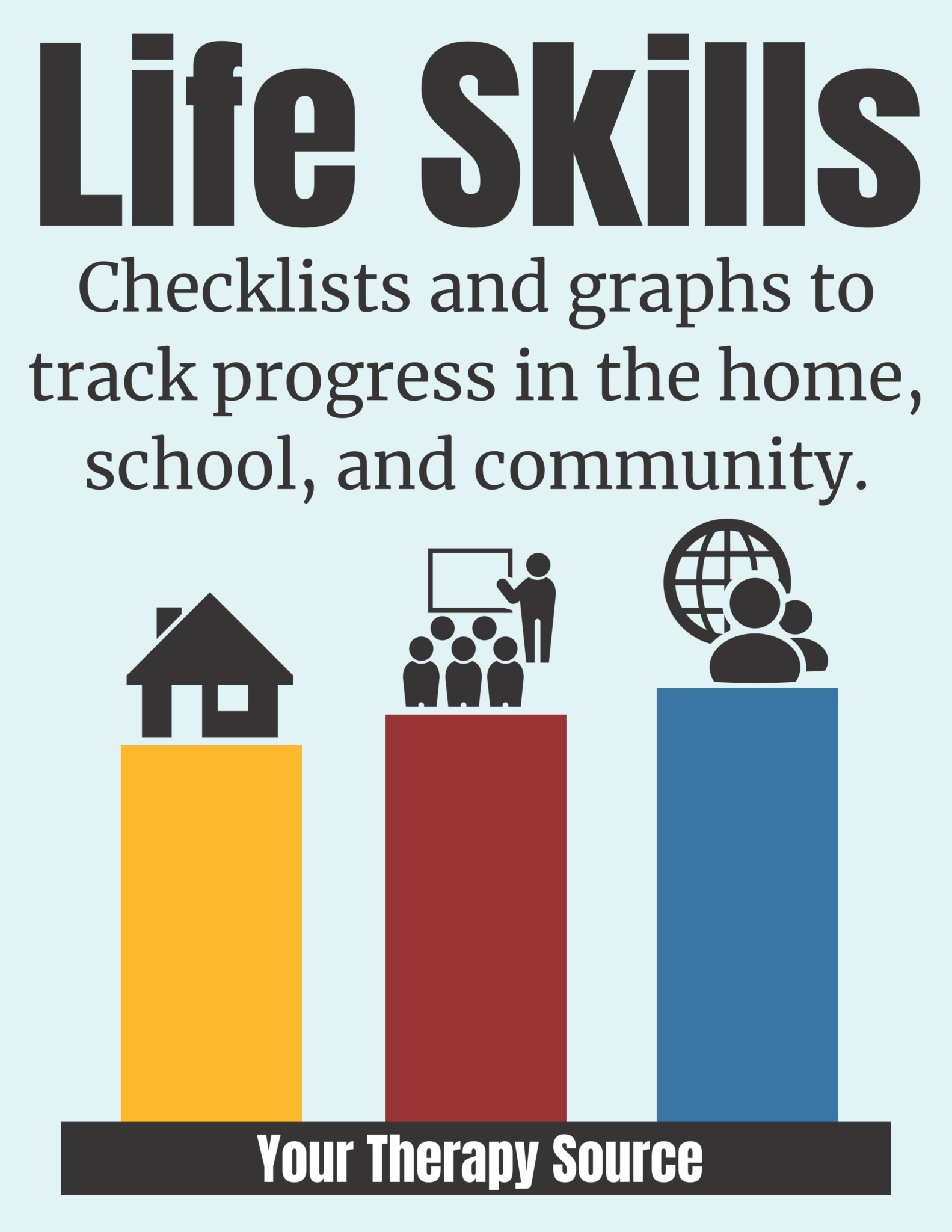
Life Skills Checklists
How Can You Improve Working Memory in Children with ADHD?
ADHD indicates a developmental delay of the prefrontal cerebral cortex, which is responsible for working memory, attention, and motor planning. Many educators work hard to offer solutions to students who struggle with ADHD. Are their working memory tasks that children can practice to improve their executive function skills.
Working Memory Training
One systematic review showed limited but promising evidence for positive effects of process-based complex working-memory training on academic abilities, especially when it came to reading skills. Individual differences in terms of training-related benefits suggested that process-based working memory and executive control training often resulted in more positive effects with larger benefits in lower-performing individuals.
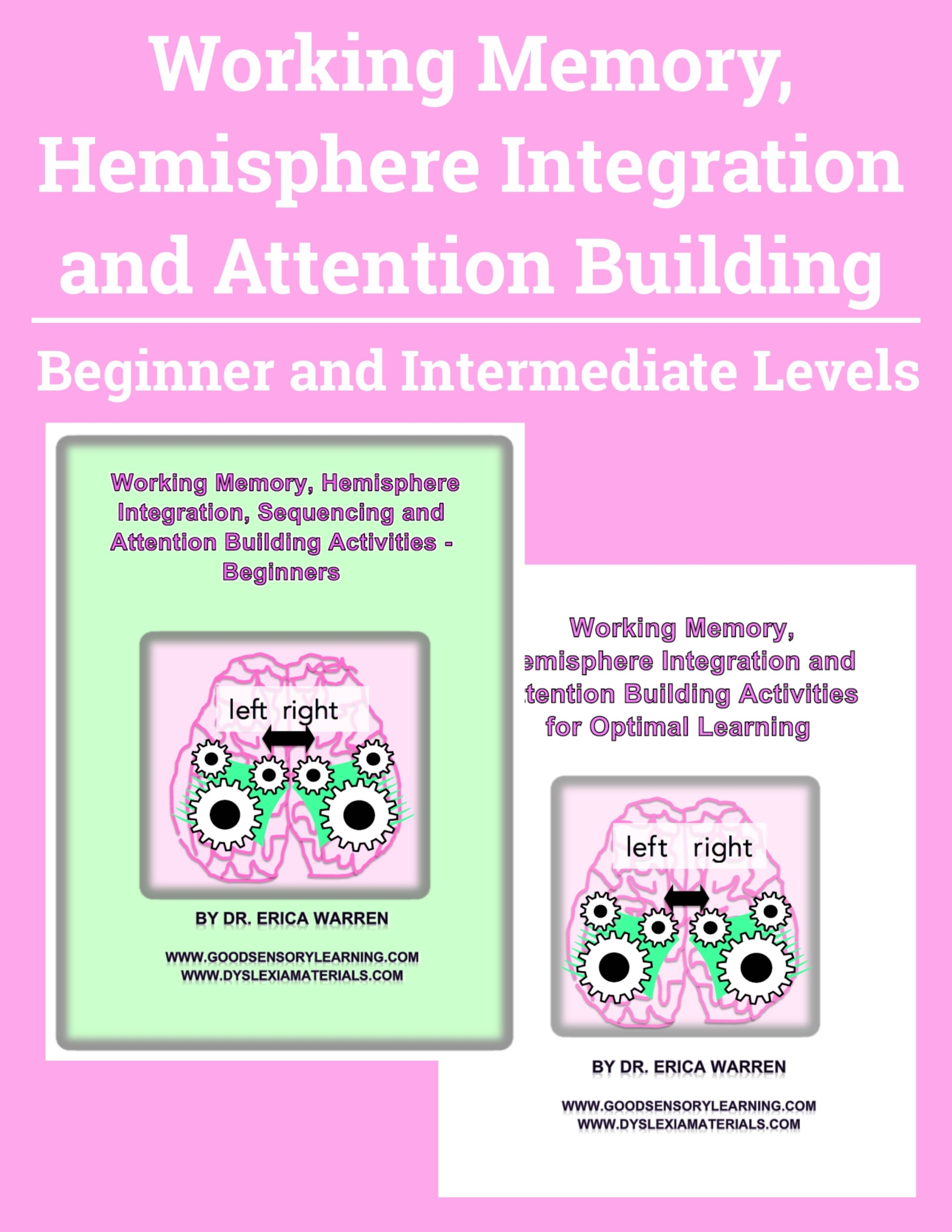
Working Memory, Hemisphere Integration and Attention Building Bundle
Games and Self-Regulation Lessons
Another study indicated that working memory training through games and self-regulation lessons was beneficial for preschoolers with ADHD (Re et al, 2015).
Computerized Working Memory Training
In a study that looked at young adults with ADHD, computerized working memory training resulted in significantly greater improvements on the criterion working memory measures and self-reported fewer ADHD symptoms and cognitive failures (Gropper et al, 2014).
Neurofeedback Training
One promising intervention is neurofeedback training to influence the working memory symptom of ADHD. This study found a statistically significant improvement in a measure of working memory in children who did 10 to 12 sessions of neurofeedback training with training. In addition, the beneficial effects were still present a year after
training (Dobrakowski & Łebecka, 2020).
Conclusion on Working Memory and ADHD in Children
The research indicates that working memory deficits can greatly influence the daily life of a child with ADHD. This can be seen with academic issues and activities of daily living. There are several interventions that may be helpful to improve the quality of life for ADHD children. Future studies should focus on examining other powerful tools to improve working memory in children with ADHD.
References:
Capodieci, A., Lachina, S., & Cornoldi, C. (2018). Handwriting difficulties in children with attention deficit hyperactivity disorder (ADHD). Research in developmental disabilities, 74, 41-49.
Dobrakowski, P., & Łebecka, G. (2020). Individualized neurofeedback training may help achieve long-term improvement of working memory in children with ADHD. Clinical eeg and Neuroscience, 51(2), 94-101.
Gropper, R. J., Gotlieb, H., Kronitz, R., & Tannock, R. (2014). Working memory training in college students with ADHD or LD. Journal of Attention Disorders, 18(4), 331-345.
Irwin, L. N., Soto, E. F., Chan, E. S., Miller, C. E., Carrington-Forde, S., Groves, N. B., & Kofler, M. J. (2021). Activities of daily living and working memory in pediatric attention-deficit/hyperactivity disorder (ADHD). Child Neuropsychology, 27(4), 468-490.
Ramos, A. A., Hamdan, A. C., & Machado, L. (2020). A meta-analysis on verbal working memory in children and adolescents with ADHD. The Clinical Neuropsychologist, 34(5), 873-898.
Re, A. M., Capodieci, A., & Cornoldi, C. (2015). Effect of training focused on executive functions (attention, inhibition, and working memory) in preschoolers exhibiting ADHD symptoms. Frontiers in psychology, 6, 1161.
Tarle, S. J., Alderson, R. M., Arrington, E. F., & Roberts, D. K. (2019). Emotion Regulation and Children With Attention-Deficit/Hyperactivity Disorder: The Effect of Varying Phonological Working Memory Demands. Journal of Attention Disorders. https://doi.org/10.1177/1087054719864636
Resources to Help Students Succeed
Are you in search of methods and strategies to help structure, guide, and support students in the areas of organization, time management and planning (executive functioning skills)? Would you like an individualized planner/agenda that suits the needs of all learners? This Planning, Time Management, and Organization Skills bundle, created by Dr. Erica Warren, a learning specialist and educational therapist, will help students master executive functioning skills.


